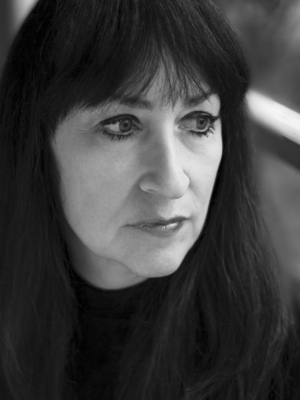Quarantine in Spring / Breaking Up
[poetry]
Quarantine in Spring
The earth has washed its lovely hands of us. Enough!
so sayeth the world. Knock it off. Sit still and think
hard about all that you have done. Then the planet
pours itself a long cool drink. Except it doesn’t.
I’m just anthropomorphizing. In truth, the air
lightens, tremors tremble less, spring flowers blossom,
and, as always, the small rain down can rain without
needing to be transformed into more poetry.
Rain will do what it does: it doesn’t have to be
seen by us or dotted with some pink umbrellas
or soaking a young, love-struck couple in a clutch.
We need these things to be: the rain and the touching.
We even need poetry, but first we must stay
inside alone, face facts, and finally come clean.
***
Breaking Up
Her mother was gone. Alas and alack. Siblings dissolved into sarcasm and dinners in family restaurants. This was an ending. This was the beginning of her end. She could barely speak. She wrote death poems instead. Friends said, ”I hope you feel better soon.” But she didn’t feel better soon. Friends said, “I don’t know how to respond to this level of grief.” Their babies hid their phones and keys. Their jobs put them to sleep. Mouse crap littered her cupboards. She tried live-catch traps, then poison. The house quaked and creaked. The house told her she owned nothing. The dogs said, “Don’t look to me, my queen. I too am dying.” Her husband coughed up, “I love you, hon, but I’m on deadline.” Death tapped at her window like a dapper Dracula. He said, “Illicit sex is all that’s left of romance.” He bought her soft-serve and rowed them out to sea, where porpoises laughed and promised a kind of immortality or at least the suburban version of Lethe: cheese, wine, and movies. Death kissed her fingers into ice, ran his cold tongue down her chest until her heart froze, blue topaz: the maiden encased in ice. Nothing felt good to her—the best. So why did she break up with him? His icicle penis? His one-track mind? The fact that, at core, he was a man of business? Was it something he said? “Disintegration”? “Final Solution”? Something he hadn’t done? Killed the mice? Changed the light bulbs? Yes and yes. Mostly, it was September. New England is gorgeous in October. In November, she’d need to rake the leaves. Come December, gifts for nieces. As much as she loved death, she wasn’t dead yet.
Cathleen Calbert’s writing has appeared in Ms., The Nation, The New York Times, The Paris Review, Ploughshares, Poetry, The Women’s Review of Books, and elsewhere. She is the author of four books of poems: Lessons in Space, Bad Judgment, Sleeping with a Famous Poet, and The Afflicted Girls. Her awards include the 92nd Street Y Discovery Poetry Prize, a Pushcart Prize, the Sheila Motton Book Prize, and the Mary Tucker Thorp Professorship at Rhode Island College.





